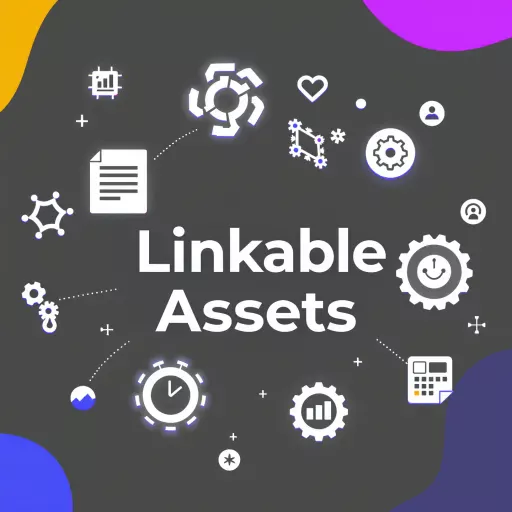Building high-quality backlinks remains one of the most powerful ways to boost your website’s authority and search engine rankings. Whether you’re running a small business or managing a corporate website, understanding how to earn valuable links can transform your online presence.

Let’s explore proven strategies that work right now, focusing on ethical approaches that build lasting relationships and genuine authority.
Understanding What Makes a Quality Backlink
Not all backlinks are created equal. A quality backlink comes from a reputable website that’s relevant to your industry or topic. Think of it as a vote of confidence from another site owner who believes your content adds value to their audience.
Domain authority plays a crucial role here. Websites with higher authority scores (typically measured on a scale of 1-100) pass more SEO value through their links. However, relevance often trumps pure authority – a link from a smaller, industry-specific site can be more valuable than one from a high-authority but unrelated website.
The context surrounding your link matters too. Links embedded naturally within relevant content perform better than those stuck in footers or sidebars. Search engines can tell the difference, and they reward links that appear genuine and helpful to readers.
Guest Posting: Building Relationships Through Value
Guest posting remains one of the most effective link building strategies when done properly. The key lies in approaching it as relationship building rather than simple link acquisition.
Start by identifying websites in your industry that accept guest contributions. Look for sites with engaged audiences and quality content standards. When you find potential targets, spend time understanding their audience, writing style, and content gaps.
Customising each article for the specific site audience increases your chances of acceptance dramatically. Study their most popular posts, comment sections, and social media engagement to understand what resonates with their readers.
Your pitch should focus on the value you’ll provide to their audience, not what you’ll gain. Propose specific topics that address their readers’ challenges or interests. Include writing samples and demonstrate your expertise in the subject matter.
When writing your guest post, make it your best work. Provide actionable insights, original research, or unique perspectives that readers can’t find elsewhere. The better your content, the more likely the site owner will welcome future contributions.
Creating Linkable Assets That Attract Natural Links

Linkable assets are pieces of content so valuable that other websites naturally want to reference them. These might include comprehensive guides, original research, helpful tools, or industry reports.
Start with topics where you have unique insights or access to exclusive data. Creating “Top 50 X in 2024” style listicles works particularly well because they provide quick reference value for other content creators.
Infographics continue to attract links, especially when they present complex information in an easily digestible format. Make sure your infographics are well-designed and include your branding, but keep promotional elements subtle.
Interactive tools and calculators can become powerful link magnets. If you can solve a common problem in your industry with a simple online tool, you’ll likely earn links from grateful users who want to share the resource with their audiences.
Original research and surveys provide excellent linking opportunities. Even small-scale studies can generate significant interest if they reveal surprising insights or confirm suspected trends within your industry.
The Broken Link Building Strategy
Broken link building offers a win-win scenario for both parties involved. You help website owners fix problems while earning quality backlinks for your own site.
Start by finding relevant websites in your industry using tools like Google search operators. Look for resource pages, link roundups, or comprehensive guides that might contain broken links. You can use browser extensions or online tools to identify broken links on these pages.
Once you’ve found broken links, check what the original linked page was about using the Wayback Machine. Then, identify broken links on relevant websites and offer your own content as a replacement. Your replacement content should be as good as or better than the original.
When reaching out to website owners, be helpful rather than pushy. Point out the broken link, explain briefly what it used to link to, and suggest your content as a potential replacement. Make it clear you’re trying to help improve their user experience.
This strategy works because you’re solving a genuine problem. Website owners appreciate when someone helps them maintain their site’s quality, making them more receptive to your link suggestions.
Leveraging Media Outreach and PR Opportunities

Media outreach can generate high-authority backlinks from news sites and industry publications. The key is becoming a reliable source of expert commentary and insights.
Platforms like HARO (Help a Reporter Out) connect journalists with expert sources. Sign up for relevant categories and respond quickly to queries where you can provide genuine value. Your responses should be detailed, quotable, and backed by experience or data.
Building relationships with journalists and bloggers in your industry pays long-term dividends. Follow them on social media, engage with their content, and share their articles when appropriate. When you eventually pitch story ideas or offer commentary, you’ll be a familiar name rather than a cold contact.
Press releases still work when they announce genuinely newsworthy developments. New product launches, significant partnerships, research findings, or industry awards can all warrant press coverage and backlinks.
Consider creating newsworthy events or initiatives specifically designed to attract media attention. Sponsoring local events, conducting industry surveys, or launching charitable initiatives can generate both positive publicity and valuable backlinks.
Building Industry Relationships and Partnerships
Strong industry relationships often translate into natural linking opportunities. Fellow business owners, suppliers, customers, and industry associations can all become sources of quality backlinks.
Join industry associations and professional organisations relevant to your field. Many offer member directories with backlink opportunities, and active participation can lead to speaking opportunities and guest posting invitations.
Partner with complementary businesses for cross-promotional opportunities. You might collaborate on content projects, co-host webinars, or create joint resources that benefit both your audiences.
Customer testimonials and case studies provide mutual linking opportunities. When customers are happy with your service, they’re often willing to provide testimonials that include links back to your website. Similarly, featuring customer success stories on your site can encourage them to link back when sharing the content.
Supplier and vendor relationships can also generate backlinks. Many businesses maintain partner or supplier directories, and strong relationships can lead to featured placements with accompanying links.
Content Collaboration and Co-Creation

Collaborating with other content creators in your industry can expand your reach while earning quality backlinks. Joint content projects benefit all parties involved by combining expertise and audiences.
Roundup posts featuring multiple industry experts provide linking opportunities for all participants. When you contribute to someone else’s roundup, you typically earn a backlink. When you create your own roundups, featured experts often share and link to the finished piece.
Podcast appearances can generate valuable backlinks from show notes and episode pages. Many podcast hosts include links to their guests’ websites and social media profiles. The key is providing genuine value to their audience rather than just promoting your business.
Webinar collaborations work similarly. Co-hosting webinars with industry partners can result in backlinks from registration pages, follow-up content, and promotional materials.
Expert interviews, whether you’re conducting them or participating in them, create natural linking opportunities. Interview participants typically link to the finished content, and interview subjects often earn backlinks in the process.
Local SEO and Community-Based Link Building
Local businesses have unique opportunities for earning relevant backlinks through community involvement and local partnerships.
Local business directories and chamber of commerce websites often provide backlink opportunities. While these might not have the highest domain authority, their local relevance makes them valuable for businesses serving specific geographic areas.
Sponsoring local events, sports teams, or charitable organisations can generate backlinks from event websites, local news coverage, and organisation websites. These links demonstrate community involvement while supporting good causes.
Local media outlets are often looking for expert commentary on industry-related news. Building relationships with local journalists can lead to regular quote opportunities and backlinks from news articles.
Partnering with other local businesses for cross-promotional opportunities can benefit everyone involved. Joint events, shared resources, or collaborative marketing campaigns can generate backlinks from multiple local sources.
Technical Considerations and Best Practices

Link building strategy success depends on understanding technical factors that influence link value. Not all backlinks contribute equally to your SEO efforts.
Link placement within content affects value significantly. Links embedded naturally within relevant text passages carry more weight than those in sidebars, footers, or author bios. The surrounding context should make the link feel natural and helpful to readers.
Anchor text diversity helps maintain a natural-looking link profile. While you want some links using your target keywords, too many exact-match anchors can appear manipulative. Mix branded anchors, generic phrases, and natural variations.
The linking page’s relevance to your content influences link value. A link from a highly relevant page on a moderately authoritative site often outperforms one from an irrelevant page on a high-authority site.
Internal linking on the source site can affect how much authority passes through to your website. Pages that are well-integrated into the site’s linking structure typically pass more value than isolated pages.
Measuring and Monitoring Your Success
Tracking your backlink building efforts helps you understand what’s working and where to focus future efforts. Several metrics can help you evaluate success.
Monitor your overall backlink profile growth using tools like Google Search Console, which shows you exactly which sites are linking to your content. Pay attention to both the quantity and quality of new links.
Domain authority improvements take time but provide a good long-term success indicator. Track your site’s authority score monthly rather than daily, as meaningful changes happen gradually.
Referral traffic from backlinks can be just as valuable as the SEO benefits. Monitor which links are sending engaged visitors to your site, as these relationships might warrant additional investment.
Keyword ranking improvements often correlate with successful link building campaigns. Track rankings for your target keywords to see how new backlinks influence your search visibility.
Brand mention monitoring helps you identify linking opportunities you might have missed. Sometimes websites mention your brand without linking – these represent opportunities to reach out and request links.
Avoiding Common Pitfalls and Maintaining Ethics
Successful link building requires patience and ethical practices. Several common mistakes can undermine your efforts or even result in search engine penalties.
Avoid purchasing links or participating in link schemes. While these might seem like shortcuts, search engines are sophisticated at detecting artificial link patterns. The short-term gains aren’t worth the long-term risks.
Don’t focus solely on high-authority sites while ignoring relevance. A relevant link from a smaller site in your industry often provides more value than an irrelevant link from a major publication.
Quality always trumps quantity in modern SEO. Building a few excellent backlinks each month beats acquiring dozens of low-quality ones. Focus your efforts on relationships and content that provide genuine value.
Maintain realistic expectations about timeline and results. Link building is about creating a network of credible and relevant connections that develop over time. Sustainable growth happens gradually through consistent effort.
Future-Proofing Your Link Building Strategy
Search engines continue evolving their algorithms, but certain principles remain constant. Focus on strategies that align with providing value to users rather than gaming the system.
Relationship-based link building becomes more important as search engines get better at detecting artificial patterns. Genuine connections with other website owners, journalists, and industry professionals provide sustainable linking opportunities.
Content quality standards continue rising across the web. Investing in truly exceptional content that deserves links will always outperform mediocre content with aggressive promotion.
User experience factors increasingly influence how search engines evaluate links. Links that generate engaged traffic and positive user signals carry more weight than those that don’t.
Embracing a robust backlink strategy can lead to sustained growth regardless of algorithm changes. By focusing on value creation, relationship building, and ethical practices, you’ll build a link profile that supports long-term success.
Building high-quality backlinks takes time, effort, and patience, but the results justify the investment. Start with one or two strategies that align with your strengths and resources, then expand your efforts as you gain experience and see results. Remember that the best backlinks come from genuine relationships and valuable content that others naturally want to reference and share.


